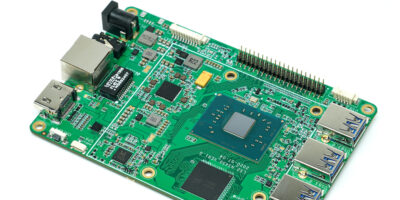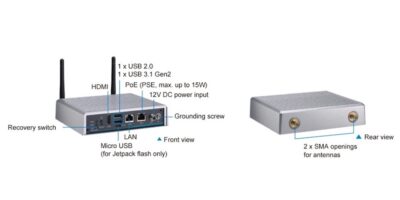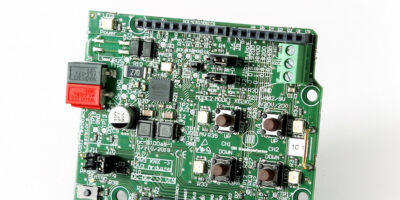A Windows-capable single board computer (SBC) can be used by professionals, hobbyists, teachers and students in the development of a wide variety of applications, including home automation, IoT appliances, sensor gateways and entertainment systems.
The Hackboard 2 is available from Crowd Supply with an Intel processor and optional 4G or 5G connectivity. The standard version of Hackboard 2 is supplied pre-installed with Windows 10 Pro, for application in IoT and entertainment systems, including media servers. The Python programming language is also pre-installed, for accessing the board’s general purpose I/O.
Hackboard 2 integrates a suite of powerful features, including an up to 2.8GHz, 64-bit dual core Intel Celeron N4020 processor, an Intel UHD graphics processor, 64Gbyte of onboard eMMC storage, and 4Gbyte of DDR4 RAM.
In addition to a 40-pin GPIO header, there are three USB 3.0 ports, an HDMI 2.1 output, and two M.2 slots for up to 4 TB of storage. Hackboard 2 includes its own power supply and a range of optional accessories, from 4G and 5G modems to a portable IPS 1080p HD display.
Crowd Supply is a product development platform. It offers engineers and companies a full suite of services to launch products, including marketing, fulfilment, crowd funding, and ongoing sales through distributors. The creator-focused platform connects backers with projects that address a market need, allowing developers to quickly validate their ideas and capitalise on high levels of interest from early adopters, explains Crowd Supply.







